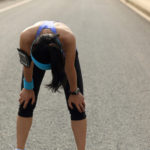Nutrition Tips for Women with Amenorrhea
“I’ve been training so hard, I’ve stopped getting my menstrual period. Is that normal?”
“Should I take the birth control pill so I start menstruating again?”
“Is it OK to not have a period for several months?”
If your among the estimated 20% of active women who has missed three or more consecutive menstrual periods, you are experiencing amenorrhea. Although some women see amenorrhea as desirable because they no longer have to deal with the hassles and possible discomfort of monthly menstrual periods, others recognize absence of periods as linkable to serious health problems: loss of calcium from the bones, almost a three times higher incidence of stress fractures, and long-term problems with early osteoporosis. Amenorrhea can also interfere with the ability to conceive easily should you want to start a family.
Amenorrhea is not sport-specific, but sports that emphasize lightness— ballet, competitive running—have the highest prevalence (up to 44%—this is much higher than the 2% to 5% in the general female population). Many of these athletes believe they have stopped menstruating because they are exercising too much or are too thin, with too little body fat. Not the case. Many very thin athletes who exercise very hard have regular menses.
Why then, given a group of women who have similar exercise programs and a low percentage of body fat, do some experience menstrual problems and others don’t? The answer commonly relates to nutrition. The woman with amenorrhea may be under-eating. When the body experiences famine-like conditions (i.e., restrictive dieting), menstruation stops due to inadequate fuel to support the menstrual process, to say nothing of nuturing a healthy baby.
Amenorrhea and restrictive eating
The American Psychiatric Association’s definition of Anorexia includes “absence of at least three consecutive menstrual cycles.” This means, many women with amenorrhea are also struggling with food issues. Other criteria include: weight loss 15% below the expected weight, intense fear of gaining weight or becoming fat, and distorted body image (i.e., claiming to feel fat even when emaciated). All of these concerns are common to female athletes. Hence, loss of menses among active women can be a red flag symptomatic of restrictive, anorectic-type eating behaviors.
Be sure to click the following link to learn more on eating disorders.
Athletes with Eating Disorders: Tips for Coaches, Parents, Friends & Teammates
Resolving the problem
If you no longer get regular monthly periods and feel as though you are struggling to balance food and exercise, please get a nutrition check-up with a sports dietitian (as well as a medical check-up with your doctor or gynecologist). If you have any concerns or questions about your nutritional needs, seek the consultation of a local sports nutritionist for appropriate care. Taking the birth control pill does not solve the problem.
The most important change required to resume menses includes balancing your calories so you can support both your exercise program and normal body functions. You can achieve energy balance by exercising 5 to 15% less and eating a little more—or by simply eating enough more to support your training. The goal is to have about 15 calories per pound of body weight of “available energy.” This means, if you weigh 100 pounds, you need about 1,500 calories PLUS enough calories to replace those burned during exercise. For example, if you run 10 miles and burn 1,000 calories, you then need about 2,500 calories for the entire day—if not more if you have a very active lifestyle.
The following tips may also help you resume menses—or at least rule out nutrition-related factors.
1. Throw away the bathroom scale. Rather than striving to achieve a certain number on the scale, let your body achieve a natural weight that matches your genetics.
2. Take a vacation from dieting, even if you have weight you want to lose. If you cannot let go of your compulsion to lose weight, knock off only 100 to 200 calories at the end of the day (so you are not in an energy deficit during the day). This small change can result in losing 10 to 20 pounds of fat per year and is far more sustainable than the food chaos that accompanies on-a-diet-off-a-diet patterns common to many women. If you are hungry all the time, and think about food too much, you are eating too few calories.
3. Eat adequate protein. When you underconsume calories, your body burns protein (from food and your muscles) for energy. With less muscle tugging on bones, the bones become weaker. A 120 pound athlete should target 60 to 90 grams protein each day. Track your intake at www.fitday.com.
4. Eat at least 20% of your calories from (primarily healthful) fat. If you believe you will get fat if you eat fat, think again. While excess calories from fat are easily fattening, a little fat at each meal (40 to 65 grams per day) is an important part of a sports diet. Your body uses fat to absorb vitamins A, D, E and K. Enjoy nuts, peanut butter, salmon, olive oil, and avocado.
5. Eat a calcium-rich food at each meal to help maintain bone density. This means, cereal with milk, lowfat cheese on a lunchtime sandwich, a decaf latte in the afternoon, and a yogurt after dinner. Exercise helps keep your bones strong, but adequate calcium is also important. The birth control pill offers no benefit for bone health.
6. Get adequate vitamin D, to help with calcium absorption and bone health. The presence of sunlight on the skin makes vitamin D. If you are an “indoor athlete” (gym rat, ballet dancer, figure skater) who gets little sunshine, be sure to choose foods fortified with D (milk, some breakfast cereals), fatty fish like salmon, and/or a multivitamin supplement.
Is there long term damage?
Women who resume menses can restore some but not all of the bone density lost during their months of amenorrhea. The younger you are, the better your chances of recovery. Don’t let your athletic aspirations be sidelined with stress fractures. Win with nutrition!
Nancy Clark, MS, RD CSSD (Board Certified Specialist in Sports Dietetics) counsels active people at her private practice located at Healthworks, the premier fitness center in Chestnut Hill MA (617-383-6100). For more information, read her popular Sports Nutrition Guidebook and food guides for new runners, marathoners, soccer players and cyclists, available via www.nancyclarkrd.com. For online education and workshop information, visit sportsnutritionworkshop.com.





